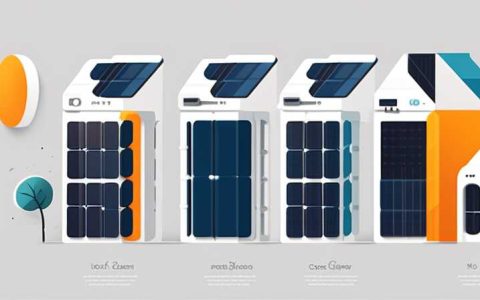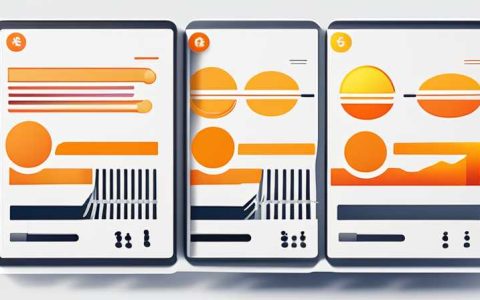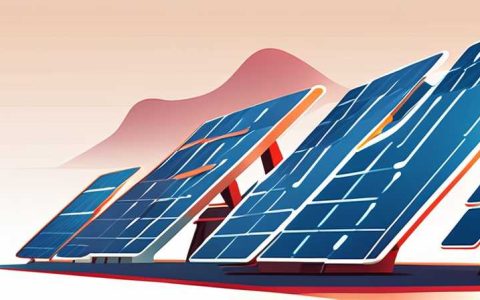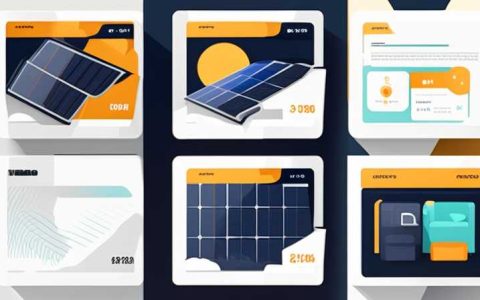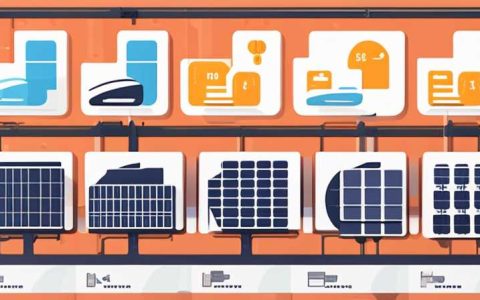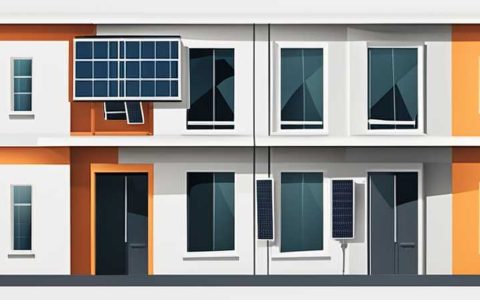
A 30-watt solar panel can provide adequate energy for specific applications and small devices. 1. It can power small electronics, such as lights and chargers, 2. It supports battery charging for off-grid setups, 3. It serves as a supplementary energy source for RVs and boats, 4. It contributes to a sustainable energy solution for remote locations. Specifically, powering small electronics is crucial for individuals seeking to utilize clean energy sources while maintaining basic modern conveniences. A 30-watt solar panel can typically provide enough power to run a few LED lights or charge devices like smartphones and tablets, making it a practical choice for those wanting both portable and efficient energy solutions.
1. SMALL ELECTRONICS POWERING
Harnessing solar energy offers an eco-friendly alternative for powering smaller electronics. 30-watt solar panels are particularly beneficial for devices with low power requirements. LED bulbs, for instance, have a minimal energy consumption level, often drawing between 5 to 10 watts. This capability allows multiple LED lights to be powered simultaneously by a single 30-watt panel, accommodating lighting needs in various settings, particularly during camping trips or in remote cabins. Essentially, this feature enables users to harness sunlight to maintain illumination without reliance on conventional power sources.
Further, mobile devices like smartphones or tablets demand little energy as well, often requiring approximately 10 to 15 watts for charging. Through efficient management of solar resources, one can effectively utilize a 30-watt panel to charge these gadgets, ensuring connectivity during outdoor activities or while living in remote areas. Moreover, with the integration of energy-efficient chargers and power management systems, users can maximize energy harnessed. The biodynamic approach not only reflects a shift towards sustainability but also addresses the practicality of portable energy solutions, enhancing the convenience of outdoor experiences or off-grid lifestyles.
2. OFF-GRID BATTERY CHARGING
Establishing an off-grid lifestyle often necessitates reliable energy sources to sustain daily functions. A 30-watt solar panel can serve as an invaluable part of an off-grid battery charging system. It provides an effective means to utilize solar energy to charge batteries, ensuring that appliances and other electronic devices receive the power they require, regardless of the availability of a traditional power grid. Typically, these systems involve a charge controller, batteries, and inverters to facilitate energy storage and conversion for varied applications.
When energy is stored during daylight hours, it can later be utilized for various needs, particularly during nighttime or inclement weather. These systems allow people living in remote areas to run refrigeration units, small appliances, or other essential gadgets without dependency on electricity from conventional means. Battery-backed systems ensure that users can enjoy consistent power availability, which is vital for comfort and safety. Moreover, integrating renewable energy sources reduces dependence on fossil fuels, aligning with broader sustainability initiatives aimed at minimizing environmental impacts.
3. RVs AND BOATS SUPPLEMENTARY ENERGY SOURCE
Traveling with recreational vehicles (RVs) or boats typically requires more energy than what traditional batteries offer. A 30-watt solar panel can augment energy supply in these scenarios, ensuring a seamless experience while on the move. Such installations not only support the energy requirements for lighting and small appliances but also enhance the overall efficiency of energy use, reducing reliance on gasoline or diesel generators.
RVs, for example, commonly feature numerous electronic devices, including refrigerators, televisions, and cooking appliances. By adding a 30-watt solar panel to the energy mix, users can have intermittent power boosts throughout the day. This integration helps maintain the battery charge while minimizing generator usage, leading to quieter, more eco-friendly camping experiences. Furthermore, when coupled with larger battery systems, solar panels can provide supplemental energy that extends the total period in which electrical devices can be operated. Similar applications exist in marine environments, where boats benefit from reliable energy supply, making travel more enjoyable and efficient.
4. SUSTAINABLE ENERGY SOLUTION FOR REMOTE LOCATIONS
Utilizing solar energy is especially beneficial in remote areas where conventional power infrastructure might be lacking. A 30-watt solar panel can be a foundational element of a self-sufficient energy solution, promoting sustainability and reducing carbon footprints. The installation of solar panels is an efficient means of leveraging abundant natural resources like sunlight, ultimately leading to decreased reliance on diesel generators or other fossil fuel-based energy sources.
Implementing such solutions in remote locations enables communities to maintain energy independence while ensuring the reliability of essential services. For instance, schools, clinics, and homes can operate independently while utilizing renewable resources. The cost-effectiveness of solar energy has further stimulated interest in its adoption, and a 30-watt panel serves as an accessible entry point for individuals or communities exploring renewable energy options. This shift towards sustainable energy underlines the capacity of solar technology to empower local communities with the tools necessary for self-sufficiency, directly contributing to energy resilience.
FREQUENTLY ASKED QUESTIONS
WHAT IS THE AVERAGE OUTPUT OF A 30-WATT SOLAR PANEL?
A 30-watt solar panel typically produces around 30 watts of power under ideal conditions, which usually translates to an output averaging between 2 to 3 amps depending on the voltage level of the system. Factors influencing performance include sunlight intensity, weather conditions, and panel angle. For instance, during peak sunlight hours, a 30-watt solar panel can generate significant energy, enough to power small devices or charge batteries effectively.
Moreover, understanding solar panel efficiencies and calculating average daily production becomes essential. Under optimal conditions, this panel can typically generate anywhere from 180 to 300 watt-hours per day, although actual generation can vary based on seasons. For instance, summer months may yield more energy due to longer daylight hours, while winter may result in diminished output. Users can push for higher efficiencies through proper positioning and maintaining clean surfaces, ensuring maximum sunlight absorption and effective energy generation.
HOW LONG DOES IT TAKE TO CHARGE A BATTERY WITH A 30-WATT SOLAR PANEL?
The charging period for a battery using a 30-watt solar panel largely depends on battery capacity and solar conditions. To illustrate, charging a standard 12-volt battery with a capacity of 50 amp-hours would require approximately 20 hours of ideal sunlight. This calculation assumes optimal conditions and a direct connection, with no loss throughput due to inefficiencies or suboptimal positioning.
Typically, charging remains influenced by multiple factors, including battery health and charge controller efficiency. Utilizing a charge controller can enhance the overall charging process, protecting batteries from overcharging and ensuring longevity. Furthermore, variations in sunlight can impact charging times, with cloudy days or shorter daylight periods extending the total charging duration. Understanding these dynamics enables users to allocate sufficient time and plan for energy consumption needs effectively, ensuring reliable power availability.
CAN A 30-WATT SOLAR PANEL POWER A REFRIGERATOR?
A 30-watt solar panel is generally insufficient for operating standard household refrigerators, which often require 100 to 400 watts for continual operation. However, it could power small, energy-efficient models for brief periods or serve as a part of a larger solar system designed for energy storage and management. Using a 30-watt panel strategically within a larger framework can help charge batteries that, in turn, power those small appliances effectively.
For example, while a typical refrigerator may not run directly from a small solar system, defining parameters like intermittent use or low-powered alternatives can make it feasible. Employing energy-efficient smart appliances or mini-fridges allows a 30-watt solar panel to support limited operations, serving well in smaller settings such as tiny homes or camping scenarios. Integrating this panel with multiple panels in a solar array will facilitate higher wattage outputs meeting the demands of larger appliances. The collective approach to energy management remains pivotal in optimizing power generation while utilizing renewable resources effectively.
Integrating a 30-watt solar panel into daily energy consumption can significantly enhance the sustainability of energy systems. A thorough understanding of its applicable areas—ranging from powering small electronics to contributing to off-grid living—empowers users to harness solar capabilities effectively. The initial enthusiasm around this technology reflects a growing recognition of its potential to change energy landscapes sustainably. As more individuals and communities adopt renewable energy sources, reliance on fossil fuels is expected to diminish, thus leading to reduced environmental impacts. Exploring various configurations and applications of solar panels will ensure maximization of energy efficiency in diverse environments. Those investing in solar power should consider their needs while evaluating the role that a 30-watt panel can play within broader energy solutions. Comprehending these vital elements encourages responsible energy use and amplifies the positive effects of solar technology on future energy needs.
Original article by NenPower, If reposted, please credit the source: https://nenpower.com/blog/what-can-a-30-watt-solar-panel-do/


